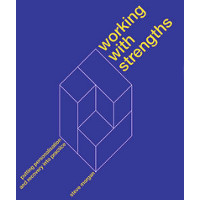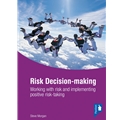Missing the real target
 Thursday, November 1, 2012 at 10:24PM
Thursday, November 1, 2012 at 10:24PM  Nothing drains passion more effectively than constant demands for information to meet apparent targets, asked without consultation or explanation, and with no meaningful returns in the form of useful feedback. Auditing everything has become an industry – but to satisfy what? The function of co-ordinating care, specifically CPA, has become a focus for quantitative returns that seemingly have little to do with the quality of the working relationships and everything to do with numbers and signatures. As many service users, carers and practitioners will testify, presence at a meeting and signing a form does not necessarily reflect influence, involvement or even truthful agreement with the documented outcomes. Yet, the bureaucratic process keeps requiring the numbers with no apparent reciprocal benefits for practitioners and teams.
Nothing drains passion more effectively than constant demands for information to meet apparent targets, asked without consultation or explanation, and with no meaningful returns in the form of useful feedback. Auditing everything has become an industry – but to satisfy what? The function of co-ordinating care, specifically CPA, has become a focus for quantitative returns that seemingly have little to do with the quality of the working relationships and everything to do with numbers and signatures. As many service users, carers and practitioners will testify, presence at a meeting and signing a form does not necessarily reflect influence, involvement or even truthful agreement with the documented outcomes. Yet, the bureaucratic process keeps requiring the numbers with no apparent reciprocal benefits for practitioners and teams.
I wouldn’t argue against the need for auditing practice; but it does appear from conversations with many practitioners that there are widely differing perceptions about priorities between the management of services and the deliverers of services. Anecdotal sources suggest that most practitioners feel they only receive feedback from audit sources when things go wrong, and that good practice is not confirmed or highlighted when it happens. If practitioners, service users and carers were asked to define the parameters of what needs to be audited, there would be some disagreements between them but the priorities would probably look a lot different from what currently occurs. Most people in the real world are concerned about relationship-building in order to support people to be more self-reliant through identifying and working with their own strengths. Audit needs to be of practice and for practice, with a focus on sustaining current good practice. But that would only put an awful lot of middle management and auditors out of a job, for their focus is 'change' for its own sake; as long as the merry-go-round keeps moving they will have a purpose.
See 'The Art of Coordinating Care' publication for a detailed framework on delivering a service user-focused, strengths-based, bureaucracy-busting approach to real practice. It has been developed as a reflection of what good practice looks like, but will challenge all practitioners to step up to the mark to deliver values-based personalised services based on working with people's strengths. Failure to do this leads to the alternative... the more usual current situation of an over-regulated system driven by the need to satisfy the politicians and public that if anything goes wrong 'it will never happen again'. What the current system can ensure will never happen again is the enjoyment and creativity fuelled by the passion of people who want to make a positive contribution to service users lives.
 CPA,
CPA,  audit,
audit,  service users,
service users,  services users in
services users in  Practice Development
Practice Development 






